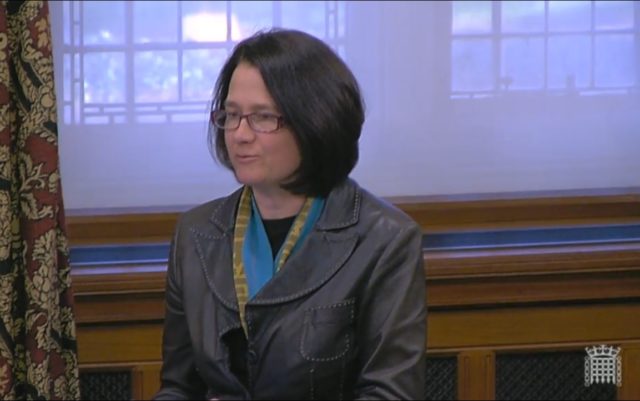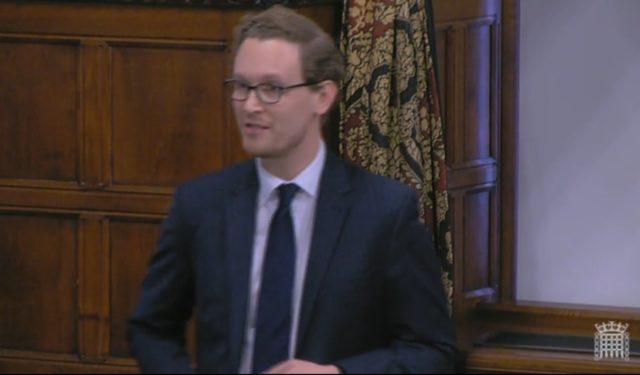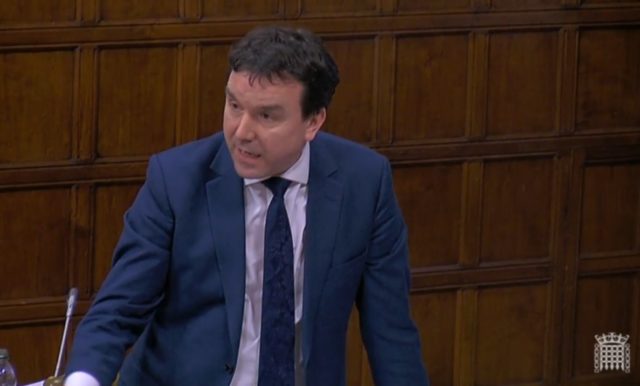
Staff who serve politicians in Parliament’s restaurants have to wait two months to receive tips that are paid to them by card, an MP has claimed.
It came as MPs said many business models in the hospitality sector were based on “exploiting their staff” and calls were made to crackdown on loopholes over tipping.
Business minister Andrew Griffiths told the debate in Westminster Hall the Government had not ruled out legislation to tackle issues over tips and would act if necessary.
Labour’s Catherine West said she was “very shocked” when she first started as an MP in 2015 that waiting staff in Parliament did not receive the tips left for them using a debit or credit card.
“Following that write-up in the Evening Standard, which later followed, there has been an improvement in practice,” said the Hornsey and Wood Green MP.
“However, I understand from an update which I received from one of the waiters here in the Palace that whilst now those tips are evenly distributed, they’re not until two months after we’ve actually had the meal.
“So I actually think that despite promises and commitments made by the House, there seems to be some improvement required here, and I wonder whether this debate could be shared more widely than just here in Westminster Hall.”

Labour’s Darren Jones, who was leading the debate on tipping practices in the hospitality sector, raised the issue of Aqua Italia in Bristol.
He said managers levied a 3% charge on all table orders, regardless of tips received by staff.
“In practice, this meant that waiters and waitresses could, on occasion, be asked to go to the cashpoint after their shift to withdraw their own money to pay their employers this levy, even if they didn’t have any tips themselves,” the Bristol North West MP said.
“These funds were then recycled to help the wage bill. In essence, charging workers to work.”
The practice was legal, Mr Jones said, providing staff were still paid above the minimum wage on average over a certain period after the deductions.
MPs heard that a similar policy was still in place at national chain Turtle Bay.
“Enforcement can only happen if it’s relating to the national minimum wage today, and that seems like an enormous loophole which I think should be closed,” said Mr Jones.
“The fact of the matter is that laws therefore need to be in place, because in the face of public pressure, some restaurant owners decided to ignore it and carried on regardless.”

Mr Jones said the law should make it clear that workers get to keep 100% of their tips.
SNP workers’ rights spokesman Chris Stephens said the Government’s national minimum wage compliance unit had 25% of its posts lying vacant, with 399 members of staff and 83 vacancies.
This compared to 4,504 full-time staff chasing fraud in the benefits system, he added.
MPs also raised concerns over other issues in the hospitality sector, such as tips being used to cover costs when tables left without paying, as well as insecure contracts and shifts being cancelled at the last minute.
“The blunt truth is that this and many other arrangements that are part of the hospitality industry in some areas are just a scam,” said Labour’s Justin Madders (Ellesmere Port and Neston).
“They’re a device to increase profits at the expense of workers, and it’s part of a wider problem that this and other sectors seem to treat workers, and especially young people, as a disposable commodity.
“Yes, this industry has always had its fair amount of casual work, but there are companies out there who seem to be predicating their entire business model on exploiting their staff.”

There were also accusations that the Government had failed to act on a consultation it launched on the matter in the summer of 2015, in the midst of a public backlash on some tipping practices.
Mr Griffiths said the Government had doubled its investment in minimum wage compliance and had responded to many issues around insecure work through the Taylor review of modern working practices.
He added: “I know many would like to see an outright ban on employers making deductions from tips or levying table charges.
“This is an extremely serious issue raised by the House today.
“The Government absolutely reserves its right to take action or to legislate if it is necessary, and the kind of evidence that we have heard today clearly indicates that the Government needs to look very closely at this and, if necessary, take action.
“So let me be clear to the House. We are not ruling out legislating in order to solve this problem.”


Comments: Our rules
We want our comments to be a lively and valuable part of our community - a place where readers can debate and engage with the most important local issues. The ability to comment on our stories is a privilege, not a right, however, and that privilege may be withdrawn if it is abused or misused.
Please report any comments that break our rules.
Read the rules here